In this article, we will talk about when you should upgrade the motherboard. A motherboard is a main printed circuit board (PCB) in computers that contains all hardware and hardware components, such as a CPU slot or socket, RAM slots, expansion slots (PCI or PCIe), storage device connectors, etc.
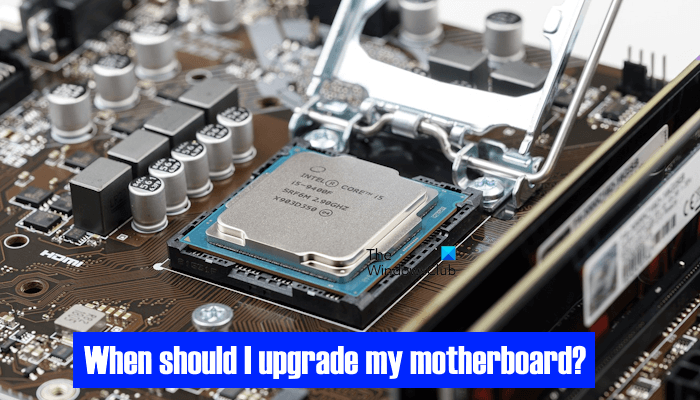
When should I upgrade my motherboard?
When a computer’s performance decreases, it is time to upgrade its hardware. The new hardware should be compatible with the computer motherboard; otherwise, upgrading that hardware is not beneficial. In this case, you should upgrade your motherboard. Here, we will discuss some points that will let you know when you should upgrade the motherboard.
- Upgrading the processor
- Upgrading the RAM or you need more RAM slots
- Bottlenecking
- Insufficient PCIe slots or upgrading to new-generation PCIe slots
- Hardware not detected
Let’s see all these fixes in detail.
1] Upgrading the processor
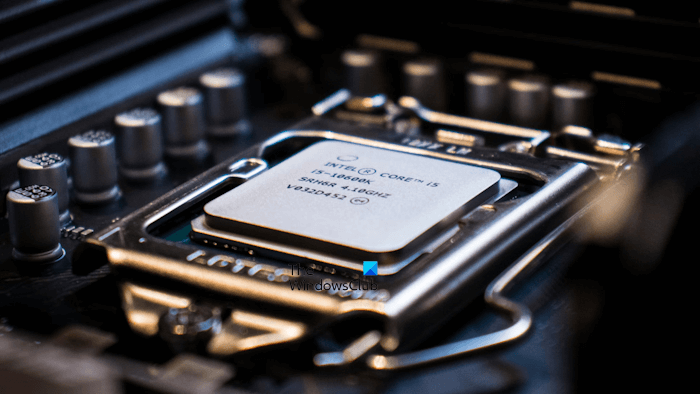
The processor or CPU is one of the hardware components on which the performance of a computer depends. Older processors cannot handle or run heavy graphics applications or games. Hence, in such cases, you need to upgrade the processor. The new processor you purchase should also be compatible with your motherboard. If it is not compatible with your motherboard, you need to upgrade the motherboard.
Read: How to keep your Motherboard clean and protected
2] Upgrading the RAM or you need more RAM slots
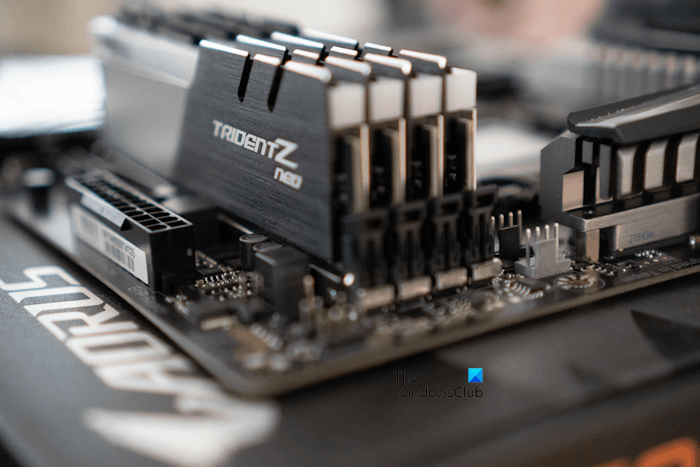
If you want to upgrade RAM for better performance and gaming experience but your motherboard does not support that RAM, you need to upgrade your motherboard. Also, if your motherboard does not have the required RAM slots, you have to upgrade your motherboard.
Read: How to keep your Motherboard clean and protected
3] Bottlenecking
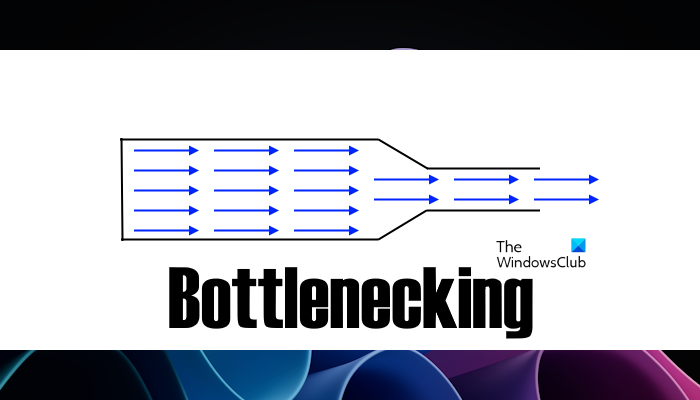
Bottlenecking occurs when the performance of a hardware component is limited due to another hardware component. For example, if you install a new graphics card but your RAM is not capable of transferring data as fast as the GPU requires, it limits the GPU’s performance. In this case, you need to upgrade your RAM. But if the required RAM is not supported by your motherboard, you need to upgrade your motherboard.
Read: What causes Motherboard failure or damage in computer?
4] Insufficient PCIe slots or upgrading to new-generation PCIe slots
A PCIe slot is an expansion slot on a motherboard. You can connect different hardware to a PCIe slot, such as a graphics card, a storage device, etc. The older generations of PCIe slots offer lower bandwidth as compared to the newer generations of PCIe slots. Higher bandwidth offers faster communication which results in improved performance. If your motherboard does not support the newer generation of PCIe slots, you need to upgrade your motherboard.
5] Hardware not detected
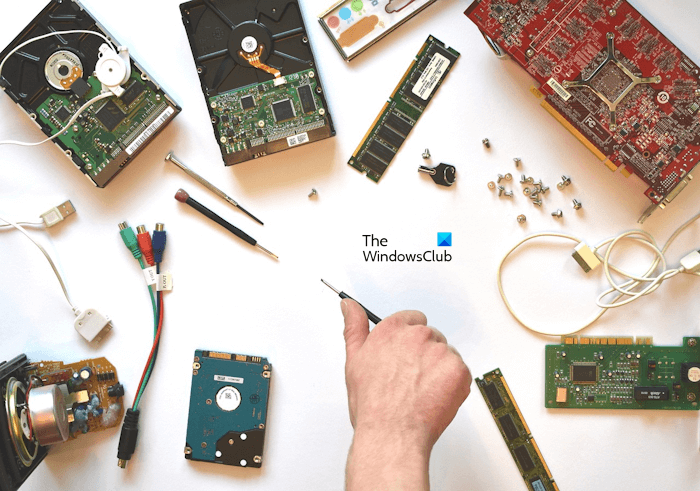
If your computer stops detecting the hardware you connect to it, the problem might be associated with your motherboard. First, you need to perform some troubleshooting. If this does not help, you can get professional help to know whether your motherboard needs to be repaired. If your motherboard needs to be repaired, you can opt for a better motherboard (if you have a budget).
That’s it. I hope this helps.
Does RAM affect FPS?
Yes, RAM affects FPS. Installing high-performance RAM on your computer results in faster data transfer which boosts the FPS in video games. Hence, you will experience better performance in gaming.
Will a new motherboard make my PC faster?
Yes, a new motherboard boosts a computer’s performance, provided you install a new faster CPU and faster RAM on it. If you install an older CPU or RAM on the new motherboard, you will not get improved performance.
Read next: What are the signs of RAM failure and how to check faulty RAM?
Leave a Reply